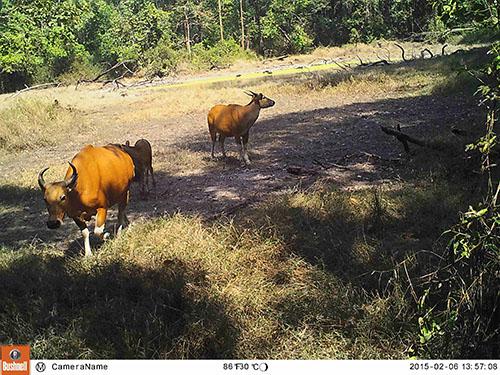Benjamin Davis
The project aims to protect the endangered wildlife of Phnom Tnout Community Forest through consistent forest patrols, wildlife monitoring and community education.

Phnom Tnout Community Forest is made up of 6,450 hectares of remote, biologically important forest. It is Primarily Dryland Dipterocarp Forest with smatterings of Evergreen Forest, on the top of the mountain and along the creeks and rivers. It is home to at least six endangered and critically endangered wildlife species: banteng, pileated gibbon, silvered langur, green peafowl, dole, sunda pangolin and an abundance of other species. The area has been established as an eco-tourist destination, BeTreed Adventures which is aiming to supporting sustainable conservation through patrolling and community based initiatives. This project works closely with the village of TaBos and assists with managing patrolling through the Community Forest by the village Community Forest ranger team. However, because the ecotourism enterprise is still in its infancy, funding for adequate patrolling is limited. It is imperative to maintain or increase patrolling levels to assure the protection of the animals within the area from poaching.
This project funded through the Rufford Foundation is therefore critical to ensure the Community Forest rangers maintain enough patrolling presence to make a difference in the survival of the endangered species populations. The project will fund an increased community patrolling presence throughout the 12 months of the project. Field patrolling will also combine wildlife monitoring during patrols. Together with a small ongoing camera trapping program, this will also keep tabs on wildlife presence/absence and contribute to an understanding of populations in the area. Finally, community education on environmental awareness with specific focus on wildlife and ecosystem protection will be conducted in the three villages that surround the Community Forest. These three villages include a small proportion of families that continue to hunt for both personal meat consumption and for selling and it is important that education can reach their villages and these individuals so that they can move in the direction of positive behaviour changes. Through these measures the project will work to better ensure survival of wildlife and healthy ecosystems in Phnom Tnout Community Forest.